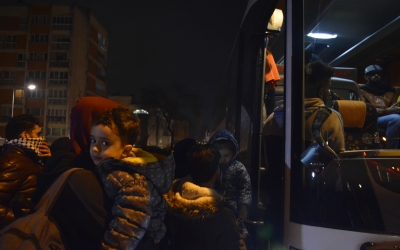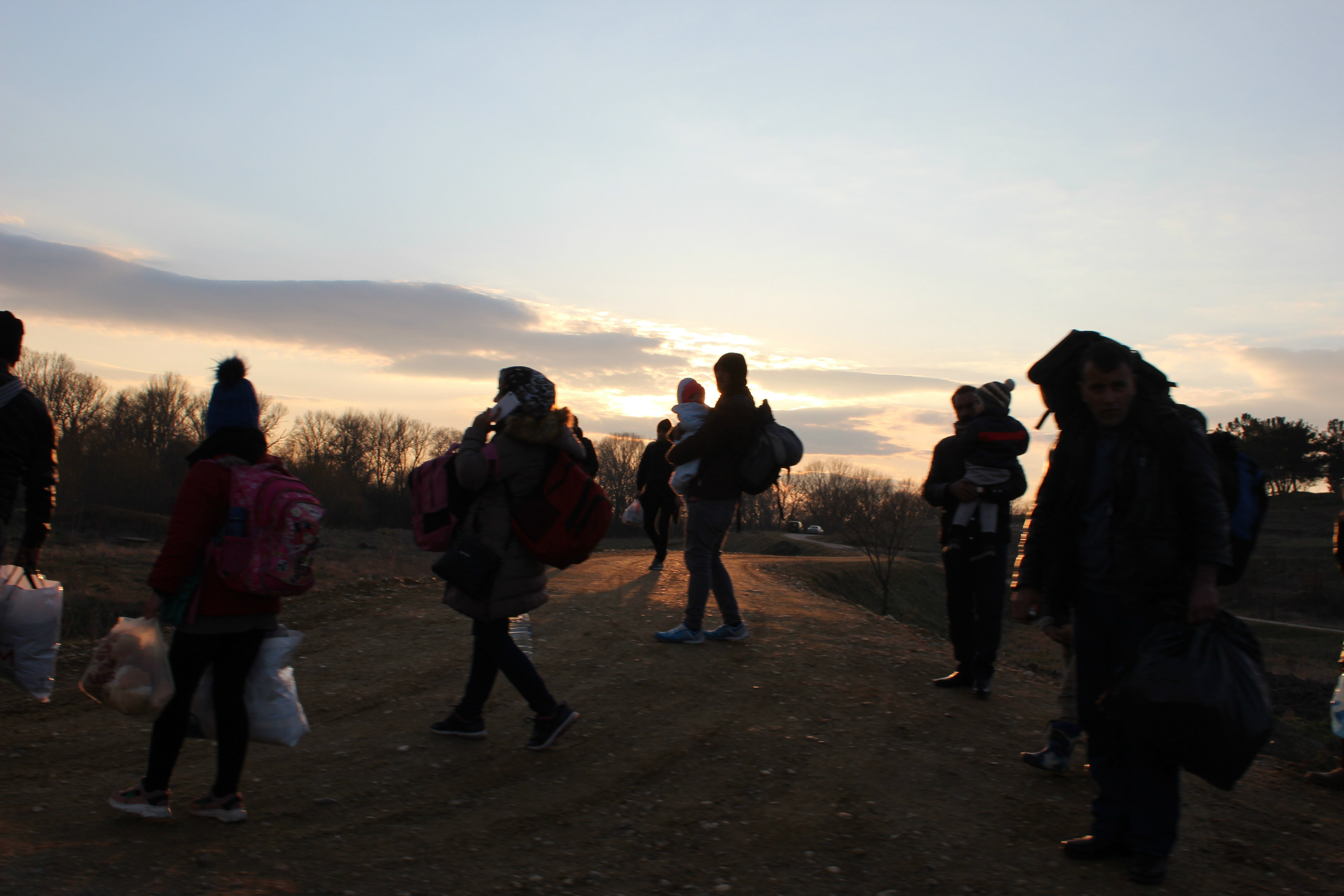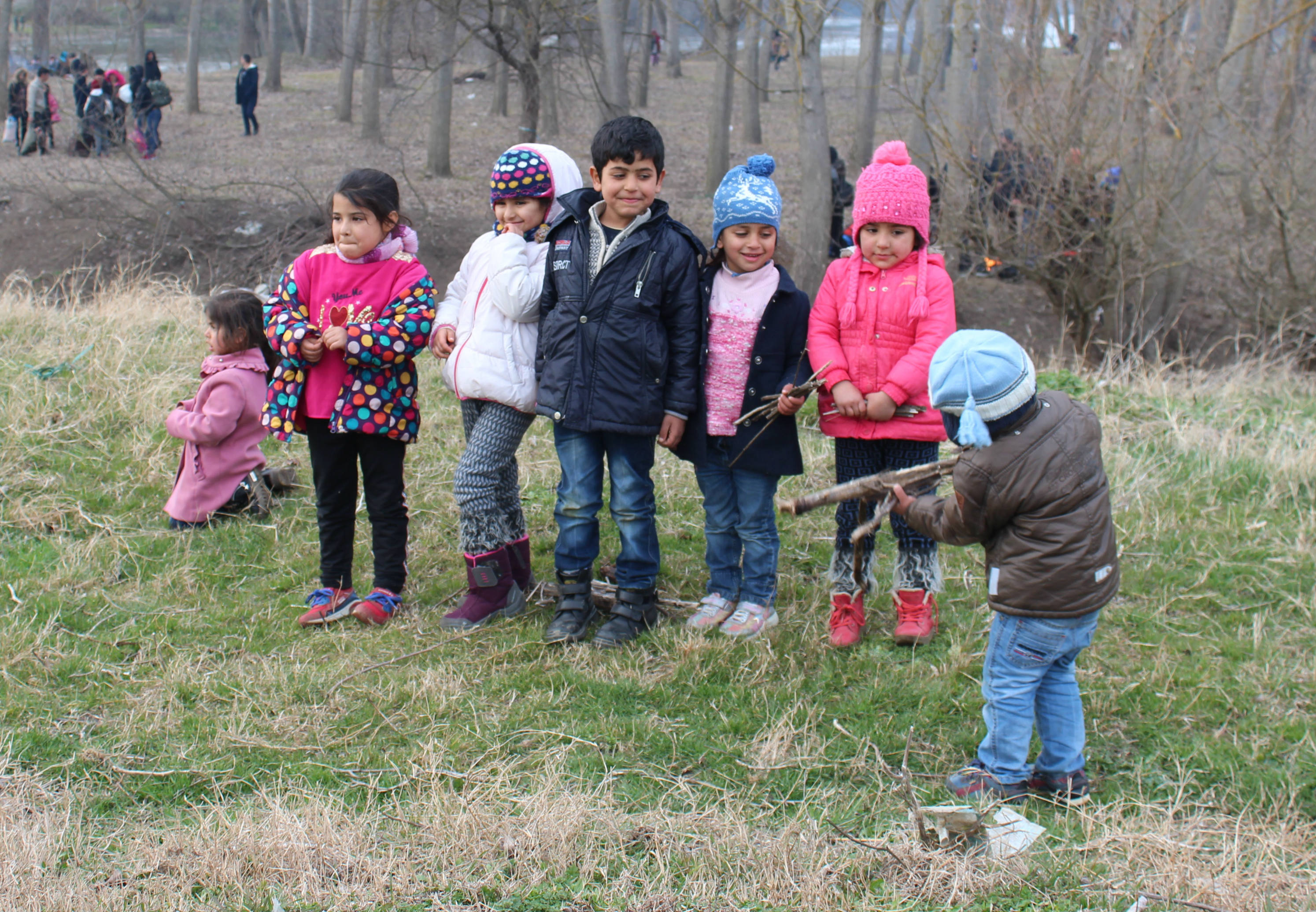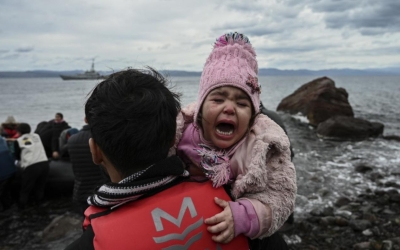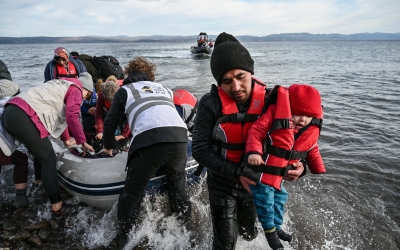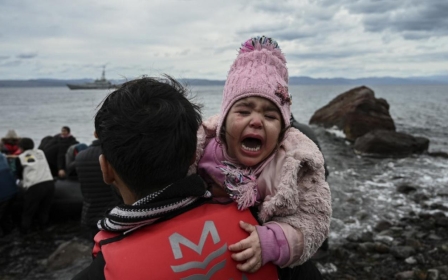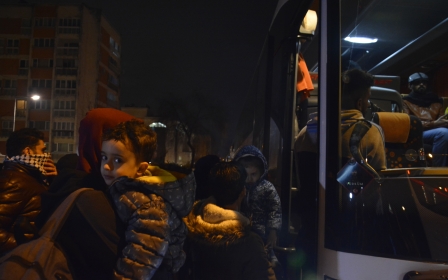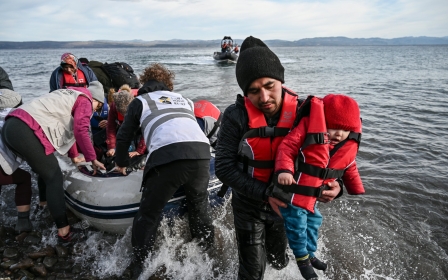'Greek police shot our Quran': Refugees face brutal tactics as they attempt to leave Turkey
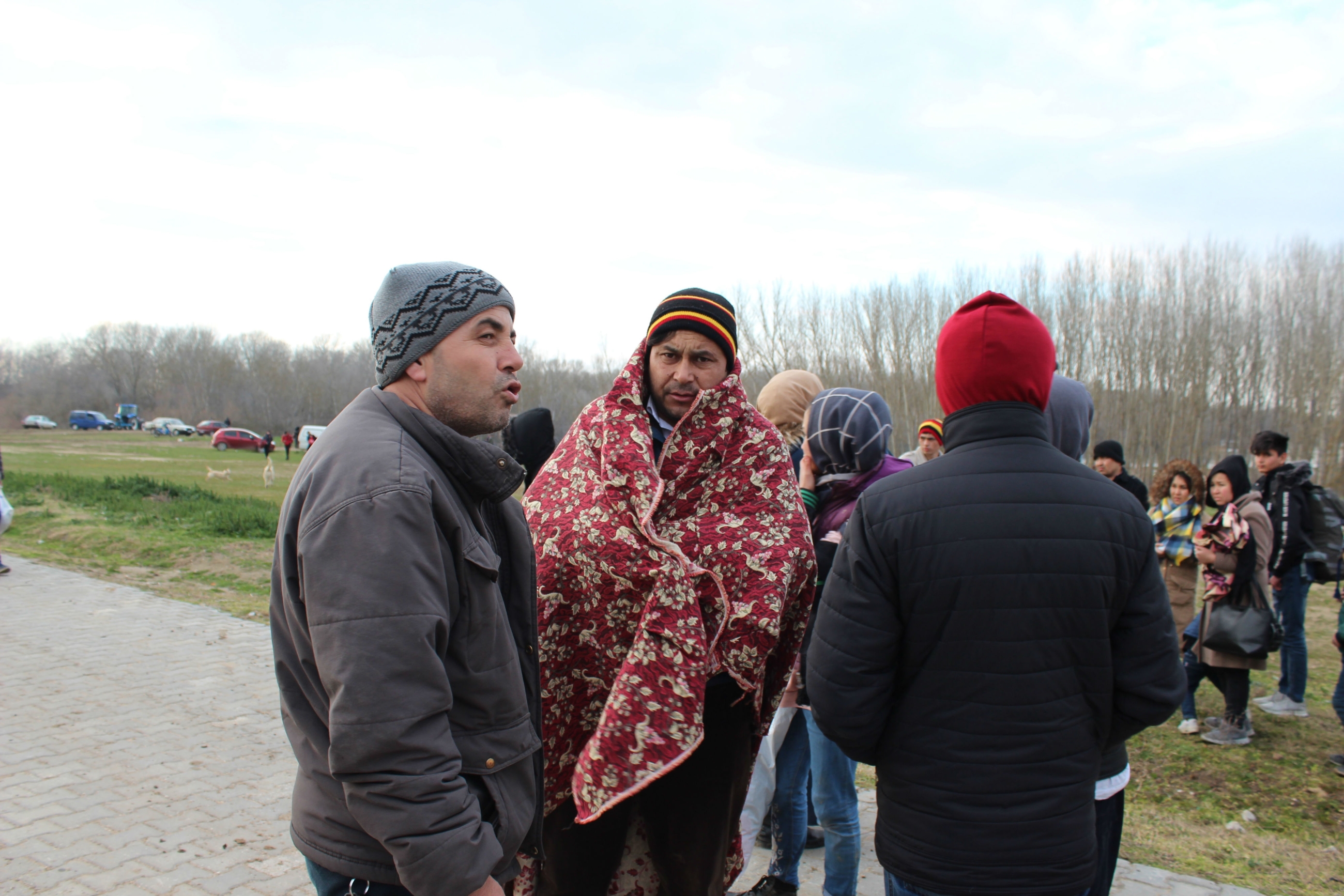
The journey of Saed, his wife and four children, his brother Khaled, Khaled's wife and five children, began on Friday morning in Istanbul’s Fatih district.
As soon as they heard that the Turkish government had abandoned controls over its borders with Greece and Bulgaria, Saed and Khaled decided to pack their essentials and leave for Edirne, located just a few kilometres from the EU states.
Saed called some of his relatives, who tried but failed to cross the border in 2015, when hundreds of thousands of refugees had marched towards the borders.
Saed received the number of a Syrian man, who, with his Turkish partner, was arranging buses from Istanbul to Edirne for the refugees.
“On the one hand, it was a difficult choice as we have children and most of them are attending to school here [in Turkey],” said Saed.
“On the other hand, there is no future for us in Turkey but in Europe,” he added. They took a bus and paid 1,500 Turkish lira ($240) in total, an amount close to Saed’s monthly earnings.
The Turkish government decided to abandon the controls on its western borders and allow refugees to cross over following the killing of at least 33 Turkish soldiers in Syria's Idlib.
Despite being a violation of a refugee deal signed between Turkey and the EU in 2016, Ankara declared that it would no longer handle the refugee crisis in the west since as many as two million people are now waiting on its eastern border with Syria to be accepted into the country.
The EU has repeatedly called on Turkey to fulfil the requirements of the 2016 deal, which include the tight control of borders against illegal migrants and receiving back any migrants who illegally crossed the border.
However, on Monday, Turkish President Recep Tayyip Erdogan reiterated accusations that the EU has so far failed to share the burden of the refugee crisis.
Erdogan claimed that Turkey has received only a fraction of a promised six billion Euros in aid from the EU, an allegation European leaders deny
Nor, says Ankara, has the EU provided promised visa-free travel for Turkish citizens or, more importantly, pledged support for Turkey’s position in the Syrian war.
Soldiers shooting in the air
Saed, Khaled and both their families arrived in Edirne, a historical city bordering both Greece and Bulgaria on Friday afternoon.
As the border gates were closed, and Greek soldiers were patrolling the area in a bid to prevent refugees entering, the bus driver left them in a small village named Doyran, 25km south of the centre of Edirne.
With the Maritza river lying to the east of Doyran and marking the boundary with Greece, the village found itself the most crowded it has ever been in its history.
With its low depth and mild flow, one can easily walk through the river to cross into Greece.
However, two Greek soldiers were positioned on the other side and shooting in the air frequently.
The two brothers started discussing what was to be done. Saed was skeptical about proceeding while Khaled seemed more determined.
“We should walk further down the river. Maybe, there aren't any soldiers over there,” said Khaled.
Saed was reluctant as they had many heavy bags. Moreover, his wife is disabled and cannot walk quickly.
Greek police shoot Quran
While Saed and Khaled were trying to figure out how to cross the border, an Afghan family appeared shouting for help.
Their clothes were wet, and they were trembling. They had managed to cross the border, but the Greek police had captured them and taken their all belongings.
“They took our money, mobile phones, passports and everything. They beat us and pushed us to the water,” Ahmad, a 22-year-old Afghan refugee, said.
His father claimed the Greek police took their Quran and shot at it.
The Afghan family were desperate and tried to convince one of the bus drivers, who was heading to Istanbul to collect new refugees, to take them with him.
The family insisted that they would pay the money upon their arrival in Istanbul, and the driver finally accepted to take them for 75 Turkish liras ($12) each.
Most probably, they were stopped by the Turkish police on their way as the bus was allowed to go to Edirne but not allowed to return to Istanbul.
'Turkey is getting more and more expensive'
Saed and Khaled were frightened by what they saw at the border as their children were with them.
One of the children is a seven-month-old baby while the others are aged between four and eight.
“It is cold. But we have to wait and see what we can do,” said Khaled. But Saed objected: “There are children. They will get sick if we stay here tonight. Maybe, it is better to go back to Istanbul.”
“Look! You know Asma,” said Khaled, referring to one of his daughters, “she was a baby when we fled from Idlib. Nothing happened that time and nothing will happen this time.”
Both of the brothers believe that Europe was offering a brighter future for them.
“We don’t have jobs here [in Turkey]. Yes, our children attend school. It is free. But Turkey is getting more and more expensive while we cannot make money,” said Saed.
Agreeing with his brother, Khaled said: “The health services are very expensive. The food prices keep increasing. We can barely earn a living.”
Pointing out another issue, he added: “I was an engineer in Syria before the war. My diploma is invalid in Turkey. I have to work day to day. How long can we continue like this?”
'Temporary guests'
Turkey is a party to the 1951 UN Refugee Convention and its 1967 Protocol, according to which Ankara has to admit any person who believes themselves to be under threat due to their political, religious or ethnic identity.
However, Turkey has imposed a geographic limitation to the 1951 convention, granting refugee status only to those who come from Europe.
Therefore, Syrians are not officially granted refugee status. Instead, Turkey developed another legal framework, called "temporary protection".
This "temporary protection" is applied to Syrians who cannot go back to Syria due to the ongoing war. By doing so, the presence of Syrians is legalised.
Thanks to this legal framework, Syrians were offered health and education facilities, social aid and permission to work.
However, Turkey regarded the Syrians as "temporary guests" and therefore did not develop a comprehensive policy for their participation in the labour market that would enable them to use Syrians' capacities at the highest level.
Therefore, it is not uncommon that engineers, doctors or other qualified Syrians work in some jobs which require only physical strength.
No soldiers to be seen
MEE left the brothers in Doyran and headed south towards Canakkale, travelling along the Maritza river.
In each village, there were buses leaving dozens of refugees.
Despite the fact that the Turkish side of the Maritza is under the control of the Turkish army, there were no uniformed soldiers to be seen.
A bus stopped in the village of Saclimusellim, 30km from the centre of Edirne, and left at least 50 Afghans by the road.
The Afghans had been living in different parts of Turkey but had gathered together in Istanbul and hired a bus.
They did not know where they were but were told that the other side of the river was Greece.
Azeez, 26, had been living in Turkey for the last four years.
“I am working in day to day jobs. There is no opportunity to receive an education and have a better future in Turkey," said Azeez.
"Moreover, it is almost impossible to gain Turkish citizenship. I have nothing to lose. I will definitely cross the border.”
Pressuring Greece
The situation of non-Syrians in Turkey is more complicated since they enjoy neither refugee status nor "temporary protection". Therefore, they are not legally eligible to work.
Going south, more refugees appeared who had crossed the border but had been captured by the Greek police and sent back to the Turkish side.
They had been stripped off their jackets, shoes and bags. Some of them had been severely beaten. The main aim was to prevent them from being able to walk.
While Turkish police were happy for the refugees to once again try to cross the border, they were unwilling to allow them to return to Istanbul.
Police checkpoints were established along the roads, with each car, especially buses, checked to see whether any refugee were being taken back to the city.
Some of the refugees, who were prohibited from returning to Istanbul, found refuge in a shelter in Yenikarpuzlu, one of the border villages where there were large crowds of refugees.
A wedding venue was turned into a shelter where the refugees, especially the beaten and stripped ones, were offered medical aid, food and water.
By keeping the refugees near the border, it appears Turkey is aiming to increase pressure on Greece and force Athens to come to a deal.
'Are they going to kill all of us?'
At the Pazarkule border gate in Edirne, one of the main gateways to Greece, the Turkish police and gendarmerie were so strict that they would not allow even Turkish citizens to reach the gate.
“If you go like a refugee, you can’t come back. And, we can’t guarantee your safety over there,” a policeman told me, while the sound of bullets and tear gas were heard every five minutes.
Despite this, the flow of refugees continued. Kamuran, a 28-year-old Afghan refugee who had been living in Turkey for five years, said: “More people have to come
"They are trying to cross the border in the villages in the south. It is wrong. If we become tens of thousands of people, what can the Greek military do? Are they going to kill all of us?”
Refugees as leverage
It remains unclear whether the EU will take action and make plans to allow for the entry and distribution of the refugees.
Turkey seems to be aiming to use the refugees as leverage against the EU, and more especially Greece, to motivate it to side with Ankara against the Syrian government.
At Kapıkule, the border gate with Bulgaria, all was calm.
Trucks carrying goods stood in line as Bulgarian tourists headed to central Edirne.
At the weekends, the city becomes populated with such tourists, who enjoy the currency difference between the euro and the Turkish lira for their shopping.
A recent meeting between Erdogan and Bulgarian Prime Minister Boyko Borisov revealed that Turkey would not mount pressure on Sofia.
Borisov, also claiming that the EU had failed to meet the requirements of the refugee deal, won an assurance from Ankara that the border gates with Bulgaria would remain calm.
Ankara appears to be playing the refugee card against Greece, with which there is ongoing tension in the East Mediterranean over oil and gas drilling.
Borisov said his government would arrange a tripartite meeting but Erdogan was reluctant to sit down with Greek officials.
Ultimately, the presence of an estimated two million refugees on Turkey’s southern border, and the fact that the Idlib crisis will not be solved anytime soon, has convinced Ankara that nothing could be worse than the current situation.
However, given the reaction of Greek soldiers and police towards the refugees, the flow of people looks likely to create another humanitarian disaster.
Middle East Eye delivers independent and unrivalled coverage and analysis of the Middle East, North Africa and beyond. To learn more about republishing this content and the associated fees, please fill out this form. More about MEE can be found here.



